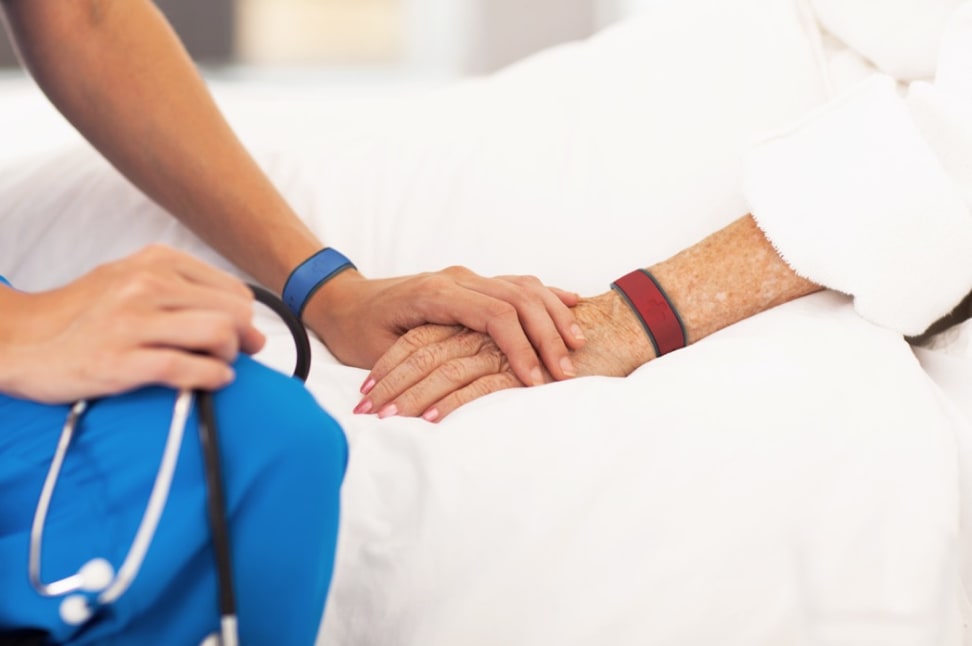How Tech From Disney World Could Make Hospitals Better
Better service, less stress, and more attention to healthcare
 Credit:
argodesign
Credit:
argodesign
Products are chosen independently by our editors. Purchases made through our links may earn us a commission.
A trip to the hospital is a lesson in patience. You're at the mercy of paperwork, a seemingly threadbare staff, and too many tests and examinations to count. Mark Rolston and his design firm argodesign want to take away some of that frustration, and it all starts with those ID bracelets you receive at reception.
Rolston and a team at his former design firm, frog, worked closely with Disney to develop the MagicBand: a connected, multifunctional bracelet that streamlines park services. Now at a new firm, Rolston was inspired by his work with Disney to come up with a way to optimize the same technology for hospitals.
It was only recently that Disney integrated the MagicBand into their theme parks and resorts, and the idea is as simple as it is brilliant. The band is multifunctional, allowing you to enter the parks, unlock your hotel room, buy food and merchandise, and more. While there have been reports of some bugs that need to be worked out, the MagicBands have streamlined the experience for vacationers and saved countless hours of otherwise wasted time.
Porting the concept of the bands into a hospital setting won't make the experience nearly as enjoyable as a theme park, but it could help reduce a lot of the stress and wasted time patients currently experience. It may also provide valuable data to help further improve the hospital experience for patients everywhere.
Instead of waiting for a busy nurse or doctor to ferry you around the building, the hospital could install tiny kiosks that scan an RFID chip in your band and then direct you to your destination, or assist you through a connected smartphone app.

The hospital would connect everything—and everyone—together.
The bands would also house a longer range radio that would allow hospitals to track patients as well as doctors in an emergency. This level of data, once properly combed through, could be mined for further improvements to the system by figuring out where time is being wasted in order to to put a larger focus on providing care.
{{amazon name="UP2 by Jawbone Activity Tracker, Black", asin="B00PHNE4X4", align="left"}} Of course there are the inevitable concerns associated with a system like this. It seems like it'd only be a matter of time before someone was given the wrong band or a malfunction occurred that sent a patient to the wrong destination, or even worse to an unneeded test. But perhaps more worrisome is the privacy concerns of just who would have access to your medical records and location within the hospital. People are understandably touchy when it comes to their private data, and a system like this would need an established protocol to ensure the information isn't abused.
The work Rolston and the team at argodesign are doing follows a trend we predicted last year concerning the future of wearables, especially those geared toward healthcare. Google, Apple, and Microsoft already announced individual health services in 2014, and CES 2015 had plenty of new gadgets meant to track and monitor health data—gadgets like the OnKöl Health Hub and the TempTraq baby monitor.
Related Article: How Wearables Will Revolutionize Healthcare
It's easy to imagine a hospital band that incorporates the tech behind fitness trackers and smartphones. Vital statistics like your heartbeat or temperature could be tracked and monitored by these bands. They could even be used as pagers for the doctors, alerting them to an emergency if the device notices an aberration or unexpected shift.
We've already seen the rise of wearables in the consumer market, and their reach is only going to expand in coming years. The smartphone revolutionized the way we collect and disseminate information. Smartwatches—taking a cue from fitness bands like the FitBit or Jawbone UP—are poised to shake up the status quo even more. It's hard to deny that we're fast approaching the point where technology can constantly collect data on our health and well-being.
The potential is there to completely revolutionize how we manage health care institutions and our visits to them. It's just a matter of taking some of the magic from Disney and bringing it to a new setting.
Related Video
{{brightcove '4111761233001'}}
